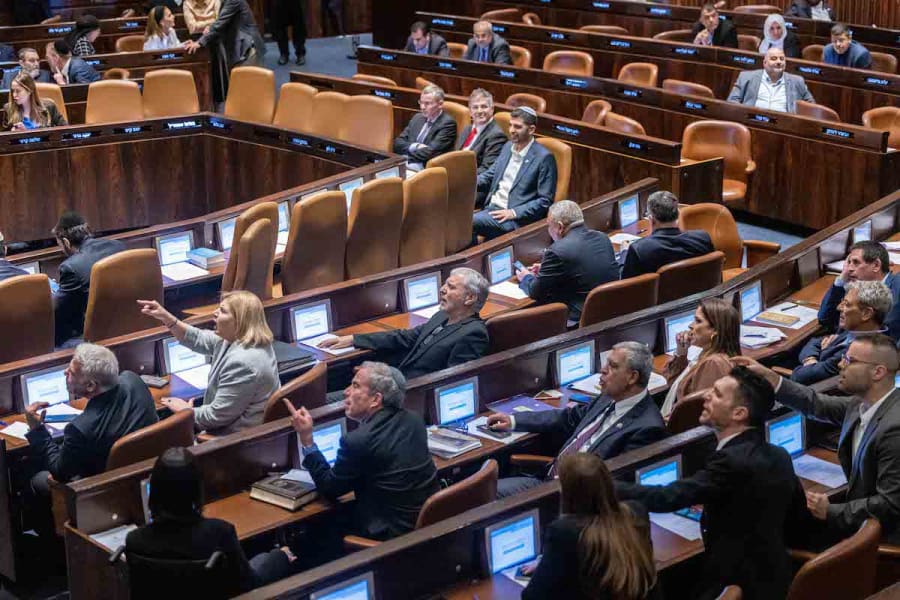Knesset passes first reading of bill giving politicians control of investigations
Knesset moves forward a number of controversial bills in one long session

In a marathon legislative session Wednesday, the Israeli Knesset approved the preliminary reading of a bill to move the Police Investigations Unit from the state attorney’s office to the justice minister’s office.
The bill would give political oversight to a unit that has, in theory, operated independently. It would also enable the unit to investigate prosecutors from the State’s Attorney office, as well as police officers.
The bill was proposed by Likud party Knesset Member Moshe Saada, who argued that the unit had an inherent conflict of interest because the State Attorney’s Office works closely with the Israel Police during investigations, something that could potentially interfere with the process.
Saada, who worked as the unit’s deputy commander, claimed that this behavior was also witnessed among senior police officers.
Saada claimed last summer that the unit overlooked illicit activity by then-Police Chief Roni Alsheich over fears that investigating him would interfere with the high-profile investigation of Israeli Prime Minister Benjamin Netanyahu, facing charges for bribery, fraud and breach of trust.
Netanyahu has also stated that police and prosecutors have conspired against him to remove him from office.
The bill states that as long as the PIID organically is linked to the State Attorney’s office, “impartial investigations cannot be expected when it comes to senior police officers, with whom there are close working relationships.”
The bill’s opponents argue that it makes politically-motivated investigations of attorneys possible, as is seen with the attorneys investigating Netanyahu.
Labor party Knesset Member Gilad Kariv said that Saada's bill should have placed the police unit under the oversight of a judge, not a politician who could abuse the unit’s power.
Now that the bill passes a preliminary reading, it will go to a committee for discussion before returning to the plenum for three more readings.
Alongside Saada's bill, the Knesset pushed forward a number of other controversial laws, including the so-called Deri Law, the Override Law, the Hametz Law and the Rabbinical Courts Law.
The Deri Law would prevent the High Court from ruling on the “reasonableness” of ministerial appointments, thus allowing Netanyahu to reinstate Shas party Knesset Member Arye Deri.
The Override Law affirms the High Court’s authority to strike down laws that violate Basic Laws, but only on the condition that there is unanimous agreement of the 15 judges on the bench. The law also permits the Knesset to override that judicial review by voting to reinstate the law with a simple majority of 61 Knesset members.
The Hametz Law would make it illegal for hospitals that define themselves as kosher to have Hametz, edible items made with leavening agents such as yeast, on their premises during the Passover holiday, when such items are forbidden by Orthodox religious Jews.
The Rabbinical Courts Law would broaden the jurisdiction of religious rabbinical courts.

The All Israel News Staff is a team of journalists in Israel.














